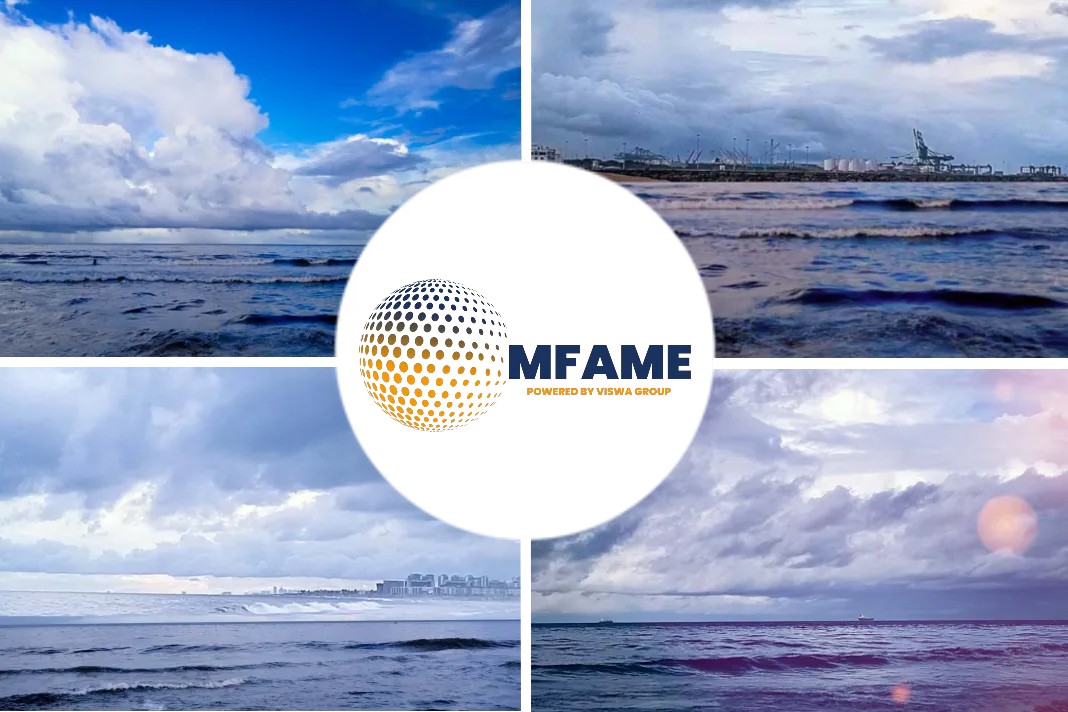Representatives from the shipping industry met the previous week to discuss on priorities of the global shipowners’ association, the International Chamber of Shipping (ICS), reports Safety4Sea.
What went into the discussions?
Although the meeting was overshadowed by the attacks against two oil tankers in Gulf of Oman, the participants discussed of IMO 2020 regulations and CO2 reduction.
Specifically, ICS agreed on actions in support of the UN International Maritime Organization (IMO) strategy to decarbonize international shipping in line with the United Nations 1.5 degree climate change goal.
New Global Regulation for Carbon Reduction?
Speaking from the Faroe Islands, ICS Chairman, Esben Poulsson commented
“It is imperative that IMO Member States adopt a new global regulation to mandate further short term CO2 reduction measures at the next session of the Marine Environment Protection Committee in 2020. This should deliver further CO2 reductions by 2023 to help us meet the IMO target set for 2030… We do not wish to limit proper consideration of other ideas such as speed reduction or the use of new CO2 reduction technologies”.
The Core Plan of Reducing Fuel Consumption
He continued that the core of the proposal is that global shipping companies will present that they do everything they can to reduce fuel consumption, strictly enforced via flag state audits of Ship Energy Efficiency Management Plans.
In addition, the ICS AGM confirmed that it is important for the industry to conduct research and development of zero-carbon fuels and propulsion systems, crucial to achieve the ambitious IMO target of cutting shipping’s total GHG emissions by 50% by 2050 regardless of maritime trade growth, and continuing to work with other industry stakeholders to explore how R&D can best be rapidly accelerated.
ICS Supports Sulphur Cap
Also, during the meeting, the ICS members highlighted their support in favour of sulphur cap 2020.
As Mr Poulsson added
“Our meeting welcomed the decision of the IMO Maritime Safety Committee last week, at which ICS led shipowner representation, to adopt an MSC Resolution addressing safety and fuel quality issues associated with the sulphur cap”.
The MSC resolution means that bunker suppliers will be encouraged by maritime administrations to provide only low sulphur fuels that meet the latest ISO Standard, i.e. ISO 8217:2017 plus the ISO Publicly Available Specification (PAS 23263) which is currently still under development.
ICS Concerned About ISO Publication Delays
In conclusion, Mr Poulsson noted that it is crucial for those interested, as governments, ISO, oil producers and bunker suppliers, to make more efforts to ensure safe and compatible fuels will be available in every port worldwide.
ICS remains concerned about continuing delays with the publication of the latest ISO Publicly Available Specification for low sulphur fuels, and related quality and safety issues where control depends on these standards being quickly finalised and distributed, given that the industry is only six months away from full global implementation.
Ship Operators Post 2020 Approach
Meanwhile ship operators are weighing in possible options as the International Maritime Organization’s (IMO) new rules governing shipping emissions post-2020 approach makes its way, reports Government Europa.
By 1 January 2020, ships must have transitioned to using fuel with a sulphur content of no more than 0.5%, compared to the current limit of 3.5%. The IMO says: “Simply put, limiting sulphur oxides [SOx] emissions from ships reduces air pollution and results in a cleaner environment. Reducing SOx also reduces particulate matter, tiny harmful particles which form when fuel is burnt. A study on the human health impacts of SOx emissions from ships, submitted to IMO’s Marine Environment Protection Committee (MEPC) in 2016 by Finland, estimated that by not reducing the SOx limit for ships from 2020, the air pollution from ships would contribute to more than 570,000 additional premature deaths worldwide between 2020 [and] 2025. So a reduction in the limit for sulphur in fuel oil used on board ships will have tangible health benefits, particularly for populations living close to ports and major shipping routes.”
Broadly three potential solutions exist for reducing sulphur emissions in compliance with IMO restrictions: low emission fuel, alternative fuel and emissions scrubbers.
Fuel Substitution Solution
Both low sulphur fuel and liquid natural gas – the presumptive substitute for current bunker fuels – present the same issues: transitioning to fuels which are IMO 2020 compliant will raise costs for operators; and ships which switch to a new fuel type could face issues of compatibility affecting wider machinery systems, exacerbated by a lack of overarching standardisation on low sulphur fuel composition.
Emissions scrubbers
Open loop scrubbers, in particular, have been the subject of extensive debate with regard to IMO 2020 compliance – while they reduce the sulphur output of existing shipping fuels, the wastewater discharged as a byproduct of the scrubbing process is pumped into the ocean, contributing to marine pollution. This has led a number of port authorities and marine environment advocates to call for a ban; which industry representatives have strongly opposed on the basis that the contribution of scrubbers to reducing sulphur emissions outweighs their potential impact on ocean water quality.
It’s Free! Click here to Subscribe!
Source: Safety4Sea , Government Europa






















